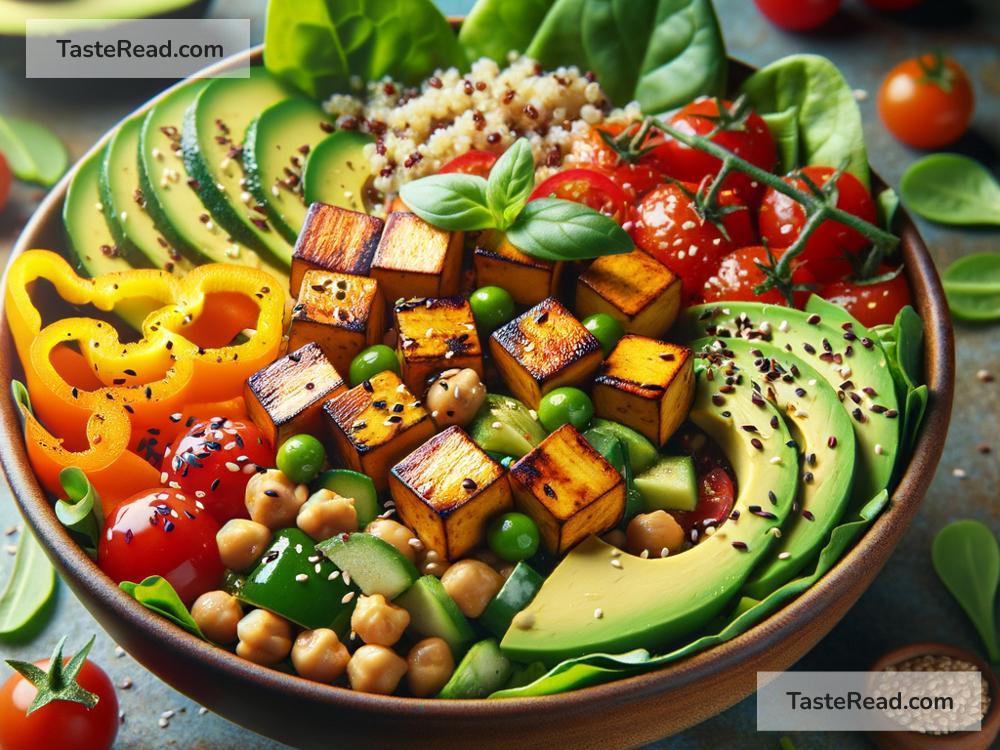The Benefits of Plant-Based Proteins
In recent years, plant-based diets have grown in popularity. People are swapping meat, dairy, and eggs for foods like beans, lentils, tofu, and seeds. One of the biggest reasons for this shift is the rise of plant-based proteins. They are not only healthy and nutritious but also better for the environment. Whether you’re looking for a new way to stay healthy or simply trying to eat less meat, plant-based proteins can offer a range of benefits. In this article, we’ll explore why plant-based proteins are so good for you and how they can fit into your daily meals.
What Are Plant-Based Proteins?
Plant-based proteins come from plants instead of animals. Foods like beans, lentils, chickpeas, peas, nuts, seeds, soy products (like tofu and tempeh), and grains (like quinoa and oats) are high in protein. These proteins are essential for our bodies because they help repair tissues, build muscles, support healthy skin, and even boost immune function.
Protein is often associated with meat, but plants also provide plenty of it. In fact, many plant-based proteins have additional nutrients that are not found in meat, which makes them even more appealing.
Why Choose Plant-Based Proteins?
There are several reasons why switching to plant-based proteins can be a good idea. Let’s break it down into four major benefits: health, environmental impact, affordability, and versatility.
1. Plant-Based Proteins Are Good for Your Health
Plant-based proteins come with a wide range of health benefits. Many studies show that people who eat more plant-based foods tend to have lower risks of heart disease, diabetes, high blood pressure, and certain cancers. Plant-based proteins are often lower in saturated fat compared to animal proteins, which makes them heart-friendly.
Another big advantage is fiber. Animal products don’t have fiber, but plant-based foods like lentils, beans, and seeds are packed with it. Fiber helps with digestion, keeps you feeling full, and promotes gut health.
Additionally, plant-based proteins contain essential vitamins, minerals, and antioxidants. For example, nuts and seeds are rich in healthy fats and nutrients like vitamin E, magnesium, and zinc. Soy products like tofu are excellent sources of calcium, which helps keep your bones strong.
If you’re trying to control your weight, plant-based proteins can help. They’re nutrient-dense and filling, so you’re less likely to overeat. Plus, they fit well into diets focused on whole, unprocessed foods.
2. Plant-Based Proteins Are Better for the Environment
One of the biggest reasons people turn to plant-based proteins is that they are more sustainable. Producing meat and dairy requires a lot of land, water, and resources. It also contributes greenhouse gases to the environment, which play a major role in climate change.
On the other hand, plants require fewer resources to grow and produce less pollution. For example, growing lentils, beans, and quinoa has a much smaller environmental impact than raising cattle or sheep.
By choosing plant-based proteins, each of us can help reduce our carbon footprint and contribute to a healthier planet. Even if you don’t switch to a fully plant-based diet, eating fewer animal-based proteins and adding more plant-based foods to your plate can make a difference.
3. Plant-Based Proteins Are Affordable
Meat, fish, and other animal proteins can be expensive, especially if you’re buying high-quality options. Fortunately, plant-based proteins are often much cheaper. Staples like beans, lentils, chickpeas, and tofu are budget-friendly and widely available.
You can buy these foods in bulk to save money, and they often have a long shelf life. This makes it easy to stock up and plan meals ahead of time. If you’re trying to eat healthy without breaking the bank, plant-based proteins can be a smart choice.
4. Plant-Based Proteins Are Versatile
One of the best things about plant-based proteins is that they work with almost any type of cuisine. Whether you love Mexican food, Asian dishes, Mediterranean meals, or classic American comfort food, you can easily include plant-based proteins.
For example, you can make black bean tacos, lentil curry, tofu stir-fry, or quinoa salads. Nuts and seeds can be used as toppings for oatmeal, smoothies, or salads. Even plant-based protein powders made from peas, rice, or hemp can be added to your morning shake.
Plant-based proteins also taste great and can be cooked in many different ways—boiled, mashed, roasted, baked, or blended. If you enjoy experimenting in the kitchen, plant-based proteins give you endless possibilities.
How to Start Adding More Plant-Based Proteins to Your Diet
If you’re new to plant-based eating, start small. You don’t need to give up meat entirely right away. Instead, consider adding recipes with plant-based proteins to your weekly meals. Try swapping one or two meat-based dishes for options such as bean chili, lentil soup, or tofu stir-fry.
Another tip is to combine different plant-based foods to get a complete set of amino acids. For example, eat rice with beans or hummus with whole-grain bread. These combos ensure you get all the essential building blocks your body needs.
Finally, don’t forget to explore store-bought options like veggie burgers, soy sausages, or meat alternatives made from plants. These can make transitioning to plant-based proteins fun and easy.
Conclusion
Plant-based proteins are a fantastic addition to any diet. They’re healthy, good for the planet, budget-friendly, and incredibly versatile. With so many delicious options to choose from, making the switch to plant-based proteins has never been easier.
Whether you’re looking to improve your health, reduce your environmental impact, or save money on groceries, plant-based proteins offer a solution. So, start exploring your local grocery store, try out new recipes, and enjoy the benefits of plant-based eating!


